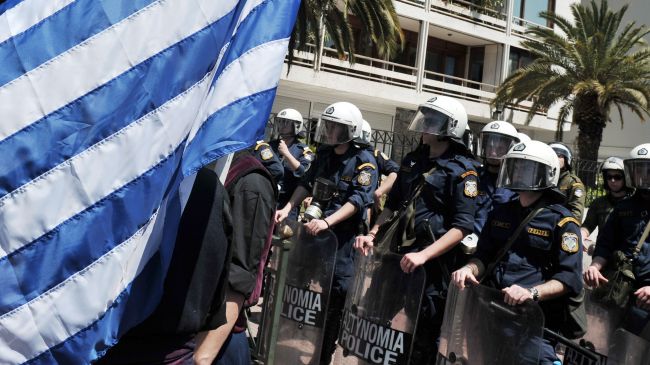
 A senior UN investigator says axed benefits has left a growing number of Greeks without health insurance and about 10% of the population living in “extreme poverty”.
A senior UN investigator says axed benefits has left a growing number of Greeks without health insurance and about 10% of the population living in “extreme poverty”.
Earlier on Friday, senior United Nations investigator Cephas Lumina strongly criticized the “excessively rigid” demands of the bailout program, saying Greece is trailing on its human rights responsibilities as a tenth of its population live in “extreme poverty.”
“The ostensible aim of the measures is to reduce the fiscal deficit, reduce labor costs and make the economy more competitive,” said Lumina.
“However, the available evidence indicates that these excessively rigid measures have resulted in a contraction of the economy and significant social costs for the population, including high unemployment, homelessness, poverty and inequality.”
According to Lumina, the UN is concerned about the quickly growing number of long-term unemployed, who lose their health care after one year when benefits are slashed.
He urged the troika of international lenders, which include European Union (EU), European Central Bank (ECB), and International Monetary Fund (IMF) to take measures to restore Greece’s safety net and also to set up a major social housing program for the country’s 20,000 homeless.
The developments come as huge number of Greeks have protested against the government’s upcoming vote on additional cuts
The march in the capital of Athens on Friday included municipal workers and contract workers opposing government’s new reforms agreed with its troika of international creditors, which are to be voted on Sunday.
Athens has agreed to additional budget cuts in return for another batch of loans worth 8.8 billion euros.
The new cuts include an additional 15,000 civil servants will be laid off by 2014, including 4,000 for this year.
The country’s unemployment rate stands over 27 percent and experts blame the harsh reforms and tax hikes for the high number.
Earlier this week, Prime Minister Antonis Samaras promised to return to growth next year, however, unions predict the recession will continue until 2015 or 2016.







